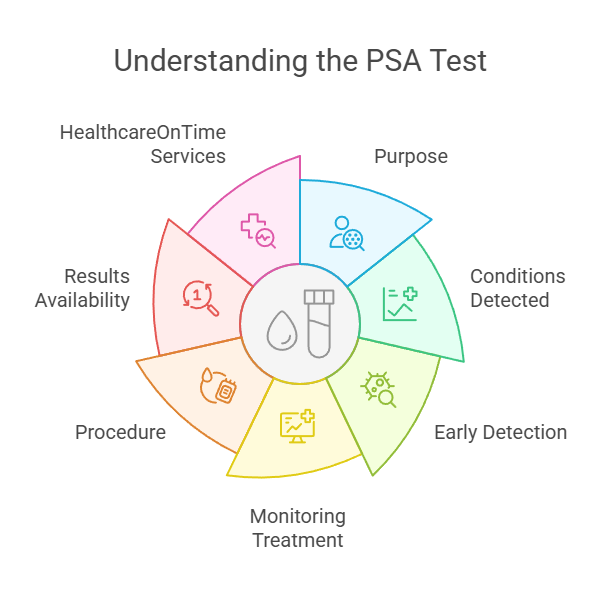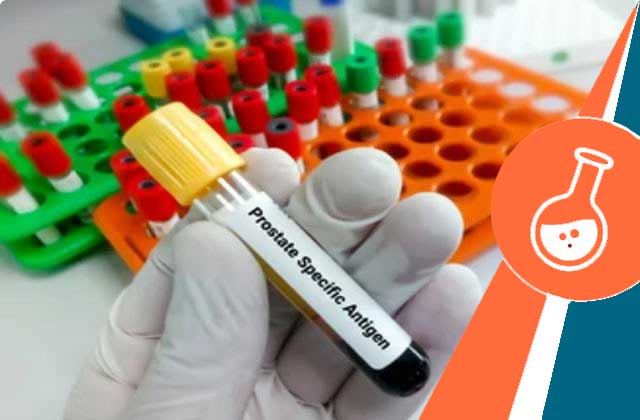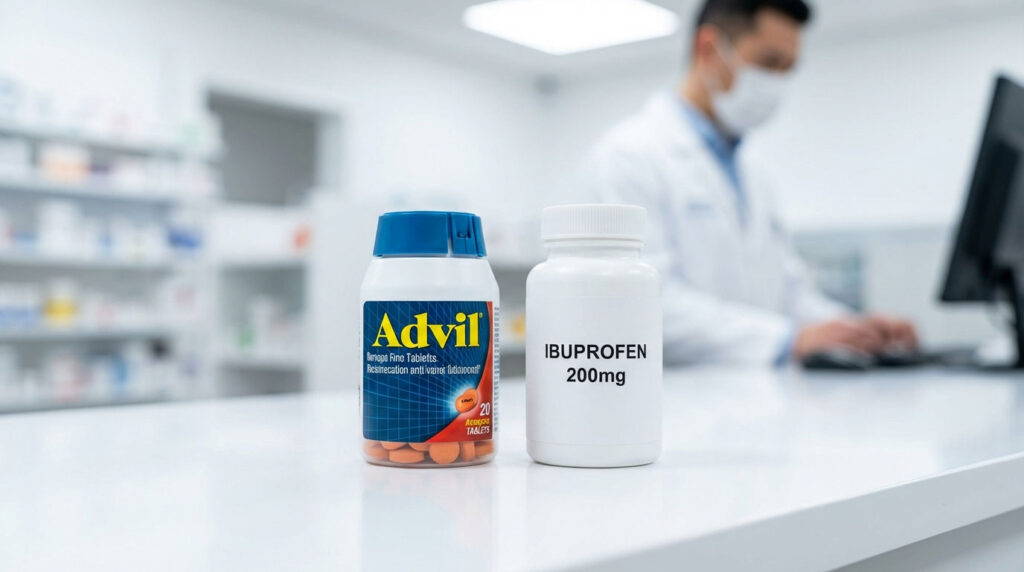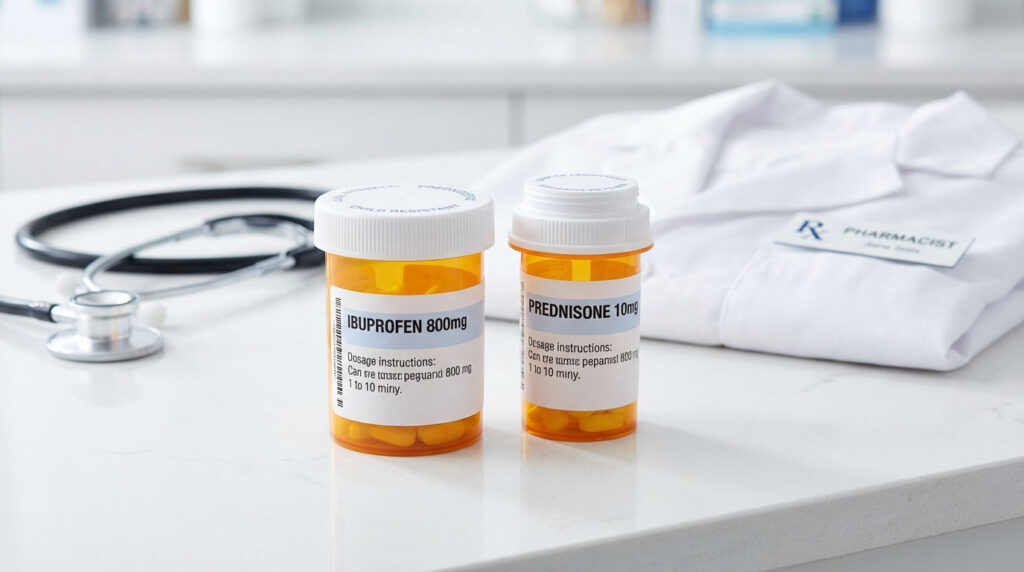
What Is Prostate Specific Antigen (PSA Test)
The prostate-specific antigen test is a blood test that measures the levels of a protein called PSA, which is produced by the prostate gland. It is commonly used as a screening tool for prostate conditions, including prostate cancer. Elevated PSA levels can indicate various prostate issues, but it does not necessarily mean cancer. The test helps in early detection, monitoring treatment response, and determining the need for further evaluation
About PSA Test
Learn everything about the PSA blood test before you book your test online.
Why Do I Need PSA Blood Test?
- Early Detection of Prostate Cancer: The PSA blood test can help detect prostate cancer at an early stage when treatment options are more effective.
- Screening for Prostate Conditions: It is a common screening tool to assess the overall health of the prostate gland and identify potential issues.
- Monitoring Prostate Health: If you have a history of prostate conditions or are undergoing treatment, regular PSA male tests can help monitor your prostate health and track changes over time.
- Assessing Treatment Response: The test helps determine if treatments, such as surgery or radiation therapy, are effectively managing prostate conditions.
How To Prepare For Prostate Antigen Test?
To prepare for a prostate antigen (PSA) test, follow these steps: consult your healthcare provider, inform them about medications, avoid ejaculation for 48 hours prior, avoid intense exercise, follow fasting instructions if given, and provide accurate medical history.
What Happens During PSA Testing?
A PSA Blood test only takes a few minutes.
- As per the scheduled time of the blood test, a lab technician who usually takes blood samples will arrive.
- A thin needle will be used to draw blood from your arm’s vein.
- The needle might cause a mild pinch and some discomfort.
- The lab technician then fills a collection tube with blood and then removes the needle from the skin.
- They place a small bandage on the arm.
Finding PSA Test
Should you call for the blood test at home to check your PSA levels or get it done by a medical professional at your preferred nearest clinic?
Can I Take PSA Lab Test At Home?
Yes, the PSA blood testing can be taken at home. HealthcareOnTime’s at-home lab testing service in association with Thyrocare, provides a convenient and efficient way to get important medical tests done from the comfort of your place, without the need for a doctor’s visit or a trip to a lab. It is always preferable to consult with a healthcare provider about any concerns regarding your test results.
How Much Does PSA Test Cost?
The PSA test price varies depending on various factors, such as where you live, the healthcare provider or a laboratory that performs the test, and whether or not you have health insurance coverage. You can check the cost of PSA Test on our website. We offer this test at INR 566. Our prices are lower than the average test prices without compromising on quality.
Test Results Interpretation
You received your PSA blood test results but still need help determining if they fall under the normal range. Read this section to know if your results range between the PSA normal range.
What Does PSA Test Results Mean?
PSA test results provide information about the level of Prostate Specific Antigen (PSA) in your blood. Lower PSA levels are generally considered normal, but the specific threshold varies based on factors like age and individual circumstances. Higher levels can indicate prostate conditions such as benign prostatic hyperplasia (BPH), prostatitis, or even prostate cancer. However, it’s important to note that a high PSA level doesn’t automatically mean cancer is present.
Further evaluation, including a digital rectal exam, imaging studies, or a prostate biopsy, may be recommended to determine the cause. It’s crucial to discuss your results with a healthcare professional who can provide personalized interpretation based on your medical history and risk factors. They will guide you on the appropriate next steps, whether it involves monitoring, additional tests, or preventive measures. Remember, PSA Profile test results are just one part of the puzzle, and a comprehensive assessment is necessary for accurate diagnosis and management.
What Is PSA Test Normal Range?
To interpret the results of the PSA blood test, it is crucial to understand the PSA test normal range. The normal range of PSA tests may vary slightly among different laboratories but generally falls below 4.0 nanograms per milliliter (ng/mL). When the PSA level exceeds the normal range, it could indicate the presence of Prostate cancer or other conditions such as Urinary tract infection.
PSA Level Range(ng/mL) | Inference |
0-25 | Prostate cancer is highly unlikely. Further testing is generally not required. |
25-40 | Considered normal range. Additional testing may not be necessary if no other riskfactors are present, PSA levels are stable, and BPH medication is not being taken.Retesting as directed by the physician. |
40-100 | Additional tests may be required to check for other benign conditions, suchas aurinary tract infection. |
10.0 and higher | Cause for concern. Probability of having prostate cancer is quite high. |
Normal PSA Levels By Age
Below mentioned are the normal PSA levels based on age. However, individual circumstances may vary, and it is important to consult with a healthcare professional for a proper evaluation and interpretation of PSA test results.
Age | Normal Level (ng/ml) | Abnormal Level (ng/ml) |
40 to 50 | 0 to 2.5 | Higher than 2.5 |
50 to 60 | 2.5 to 3.5 | Higher than 3.5 |
60 to 70 | 3.5 to 4.5 | Higher than 4.5 |
70 to 80 | 4.5 to 5.5 | Higher than 5.5 |
What Medical Conditions Can Cause High PSA Levels?
If your test results show higher than normal PSA levels (4 to 10 or higher), the following medical conditions might be causing it:
- Prostate cancer: Although elevated PSA levels are frequently linked to prostate cancer, it’s crucial to remember that not all elevated PSA levels are cancerous.
- Benign prostatic hyperplasia (BPH): This non-cancerous disorder causes the prostate gland to expand (prostate enlargement), which raises PSA levels.
- Prostatitis: Elevated PSA levels can occur as a result of prostate inflammation or infection.
- Urinary tract infection (UTI): Some UTIs have the potential to temporarily raise PSA levels.
- Prostate biopsy or recent procedures: Recent operations, such as prostate biopsies, can temporarily raise PSA levels because they interfere with the prostate gland.
What Medical Conditions Can Cause Low PSA Levels?
If your test results show lower than normal PSA levels, the following medical conditions might be causing it:
- Prostatectomy: Surgical removal of the prostate gland for causes other than cancer might result in PSA readings that are low or undetectable.
- Hormonal Imbalance: Certain hormonal imbalances or illnesses, such as hypogonadism or pituitary dysfunction, can lead to a reduction in PSA production.
- Prostate Atrophy: Prostate atrophy, which can develop with age or due to specific circumstances, can result in low PSA values.
- Obesity: Obesity has been linked to reduced PSA levels, while the underlying process is unknown.
Why Choose HealthcareOnTime
Convenience at Your Doorstep
Ever wished for healthcare that comes to you? HealthcareOnTime makes it a reality with doorstep lab testing, cutting out clinic hassles. No more queues or travel stress. Experience at-home sample collection, prioritizing health without time constraints. —your path to health, now just a doorstep away!
Affordable Testing with Thyrocare Partnership
Experience cost-effective lab testing at-home with HealthcareOnTime’s exclusive partnership with Thyrocare. Benefit from competitive prices while ensuring precise results. Our collaboration with Thyrocare Technologies Limited guarantees affordability without compromising on the accuracy and reliability of your lab test.
Comprehensive Health Screening
At HealthcareOnTime, we’ve got your back with our comprehensive health checkup packages! Take charge of your well-being by booking online. These packages empower you to stay ahead, catching potential issues early for timely management. It’s like having a health ally, and making informed decisions for a healthier, happier life.
Disclaimer: Although we have endeavored to provide accurate information on this page, we strongly recommend that you seek advice from your doctor before relying on any of the test ranges or lab-test recommendations mentioned herein.
Sources
Ref Links:
- https://www.cancer.gov/types/prostate/psa-fact-sheet
- https://www.ncbi.nlm.nih.gov/pmc/articles/PMC4277132/
- https://www.hopkinsmedicine.org/health/conditions-and-diseases/prostate-cancer/prostate-cancer-age-specific-screening-guidelines
More Related Tests
Why To Book with HealthCareOnTime

17 Crores+ Samples Processed

World Class Technology Labs

25+ Years of Trust & Experience

Free Home Collection
FAQs Around PSA Test (Prostate Specific Antigen)
What level of PSA indicates cancer?
A PSA level above 4.0 ng/mL is often considered an indicator of potential prostate cancer. However, it’s important to note that PSA levels alone cannot confirm cancer, and further testing is needed, such as a biopsy.
Is prostate cancer curable?
Prostate cancer is treatable and potentially curable, especially when detected early. Treatment options include surgery, radiation therapy, hormone therapy, and chemotherapy. The effectiveness of treatment depends on factors such as the stage of cancer and individual patient characteristics. Consult with a healthcare professional for personalized advice.
How often should you get your prostate checked?
Men should discuss prostate screening with their healthcare provider. Generally, screenings start at age 50, but may begin earlier for higher-risk individuals. Frequency depends on individual factors and should be determined through a conversation with a healthcare professional.
Does a positive PSA test mean you have prostate cancer?
A positive PSA test does not necessarily indicate prostate cancer. Further evaluation, such as a biopsy, is required to confirm the presence of prostate cancer.
When is the best time to get a PSA test?
The best time to get a PSA test is in the morning, as PSA levels tend to be slightly higher in the morning due to natural fluctuations. It is recommended to avoid ejaculation or vigorous exercise for 48 hours before the test, as these activities can temporarily elevate PSA levels.










